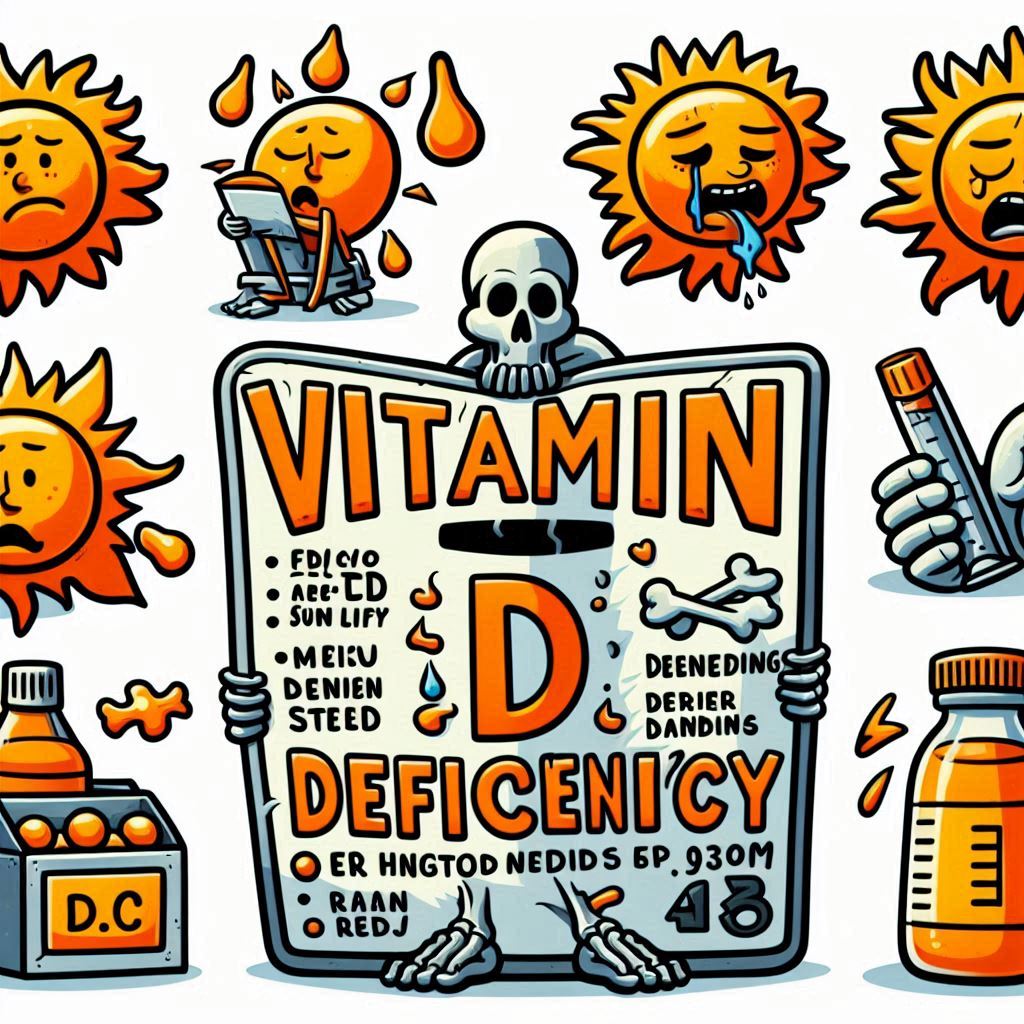
Back Pain to Hair Loss: 14 Warning Signs of Vitamin D Deficiency You Shouldn’t Ignore
Vitamin D, often referred to as the “sunshine vitamin,” is essential for maintaining overall health. Despite its importance, many people suffer from vitamin D deficiency without realizing it. This deficiency can manifest in various ways, some of which might surprise you. Here are 14 warning signs of vitamin D deficiency that you shouldn’t ignore:
- Fatigue and Tiredness
Low vitamin D levels are linked to fatigue, though the exact reason behind this connection is unclear. Some researchers suggest that vitamin D supplements could help reduce feelings of tiredness. - Frequent Illness
People who frequently get ill have a higher chance of vitamin D deficiency. Research has shown a link between low vitamin D levels and more severe illness in people in intensive care units (ICUs). - Muscle Pain and Weakness
Vitamin D plays a key role in muscle function. A deficiency can lead to symptoms like muscle weakness, pain, and atrophy (muscle loss), which can also increase the risk of falls. - Back Pain
Weak muscles can put additional strain on your back, potentially leading to back pain. Low vitamin D levels, particularly in people with lower back pain, have been linked to these discomforts, and supplementation may help relieve pain. - Bone Fractures and Osteoporosis
Vitamin D is essential for calcium absorption and bone health. A deficiency can cause osteomalacia, leading to weakened bones, which may contribute to osteoporosis and fractures. - Hair Loss
Vitamin D is crucial for hair regeneration. A deficiency might slow down hair growth and has been linked to conditions like alopecia, an autoimmune disorder causing hair loss. - Depression
Although the relationship between vitamin D and depression is not fully understood, low vitamin D levels have been associated with a higher risk of depressive episodes. - Weight Gain
Low vitamin D levels are linked to weight gain. This connection might be due to vitamin D’s role in regulating metabolism and fat storage. - Slow Wound Healing
One potential sign that you may be deficient in vitamin D is that your wounds heal slowly. This is because vitamin D is essential for immune system functions. - Dizziness
This can be a sign of vitamin D deficiency because, in the absence of vitamin D, the bones become weak. A weak cervical spine can cause dizziness. - Impaired Satiety
A sign of vitamin D deficiency is binge eating. Impaired satiety and the tendency to overeat are often seen in people who have low vitamin D levels. - Low Moods
These may be a sign of vitamin D deficiency because vitamin D is essential for keeping your moods stable because it may have a role in neurotransmitter metabolism (especially serotonin). - Problems Sleeping Well
This can be a sign of low vitamin D levels for a few reasons. Vitamin D may influence the brain areas and neural paths that regulate the sleep-wake cycle. - Aching Muscles
They can be a sign of vitamin D deficiency because this nutrient is essential for keeping your muscles healthy. Without vitamin D, your muscles may become weak and achy.
Here’s a quick look at some common symptoms and their potential impact:
| Symptom | Potential Impact |
|---|---|
| Fatigue and Tiredness | Reduced energy levels, affecting daily activities |
| Frequent Illness | Increased susceptibility to infections |
| Muscle Pain and Weakness | Difficulty in performing physical tasks |
| Back Pain | Chronic discomfort, affecting mobility |
| Bone Fractures | Higher risk of fractures and osteoporosis |
| Hair Loss | Thinning hair, potential for alopecia |
| Depression | Increased risk of depressive episodes |
| Weight Gain | Difficulty in managing weight |
| Slow Wound Healing | Prolonged recovery from injuries |
| Dizziness | Balance issues, increased risk of falls |
| Impaired Satiety | Overeating, potential weight gain |
| Low Moods | Mood swings, emotional instability |
| Problems Sleeping Well | Insomnia, disrupted sleep patterns |
| Aching Muscles | Muscle discomfort, reduced physical performance |
Recognizing these signs early can help you take proactive steps to address vitamin D deficiency. If you suspect you might be deficient, consider getting your vitamin D levels checked and discuss supplementation with your healthcare provider. Remember, a balanced diet and adequate sun exposure are key to maintaining optimal vitamin D levels.
If you have any other questions or need more information, feel free to ask!